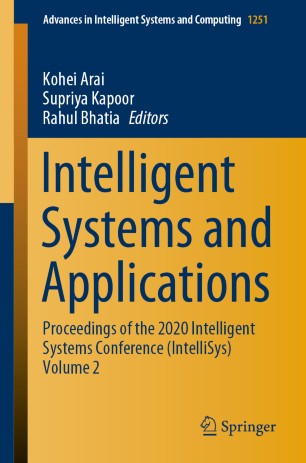Artificial Intelligence (AI) applied to real life, this is the main focus of IntelliSys 2020 (Intelligent Systems Conference), an international conference to which Omnys has taken part, as far as the Natural Language Processing (NLP) topic is concerned.
Held in Amsterdam, since 2013 IntelliSys is a leading international forum that brings together researchers and practitioners from diverse fields with the purpose of exploring the fundamental roles, interactions as well as practical impacts of Artificial Intelligence (AI). A high-profile event with speeches taken by industry practitioners, workshops and keynotes on case studies presented by researchers, coming from over 50 countries, selected according to uniquness, innovation and research prestige.
At 2020 edition (3-4 September), different from former editions due to Covid-19 and held in a virtual format, Omnys has been selected to present its research on the use of Deep Learning and Machine Learning techniques (such as Convolutional Neural Network and LSTM, Random Forest and SVM) in order to find out possible allergic reactions that may arise from misunderstanding ingredient labels placed on food packaging.
Recently, indeed, literature demonstrated that food intolerances affect a large number of world population and diagnosis, as well as prevention (starting from a correct understanding of food labels), become of high importance in order to avoid possibile allergic reactions. Consumers together with operators are demanding solutions able to warn people about the composition of commercial products.
In this scenario, Omnys demonstrated that applying the Natural Language Processing (NLP) can help in classifying foods in the right intollerance cluster, according to their ingredients.
For the research work several deep learning techniques were used and compared, on real commercial products, such as Linear Support Vector Machine (Linear SVM), Random Forest, Dense Neural Networks (Dense NN), Convolutional Neural Networks (CNN), and Long short-term memory (LSTM) together with several techniques to extract features, such as Bag of Word (BoW), Term Frequency-Inverse Document Frequency (TF-IDF), and Word2Vec, with the objective to build up a baseline for future works and studies. The results achieved were ultimately interesting, by identifying as baseline: Linear SVM and Dense NN together with Bag of Words or a combination of Bag of Words, TF-IDF, and Word2Vec.

Our case study has been also selected and published within the Springer series "Advances in Intelligent Systems and Computing" embedding the best research works dealt with in important conferences, symposiums and conventions, in Intelligent Systems and Applications, titled: Food Classification for Inflammation Recognition Through Ingredient Label Analysis: A Real NLP Case Study.
The single paper or the whole book is available for download at the following link: https://link.springer.com/chapter/10.1007/978-3-030-55187-2_15
